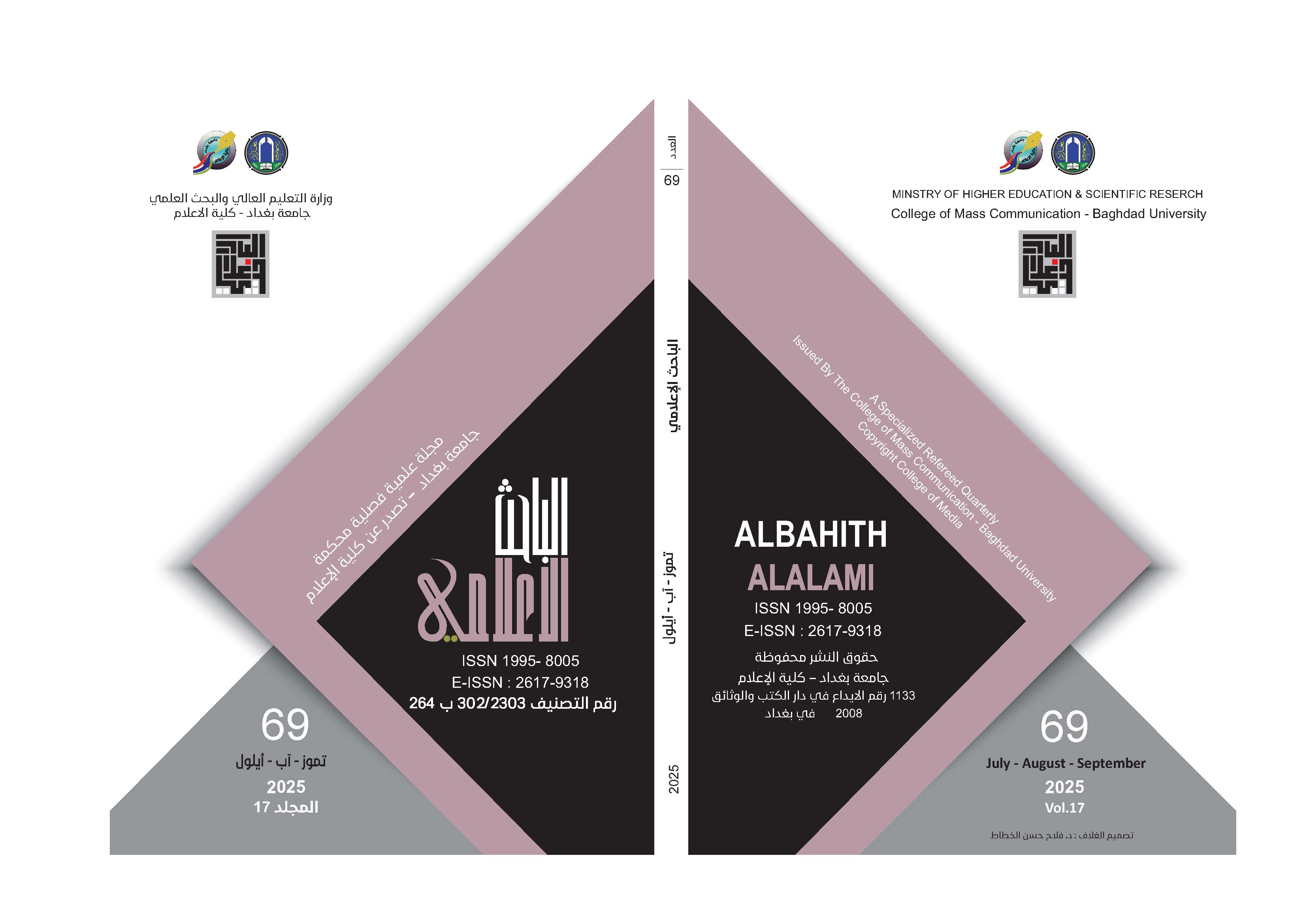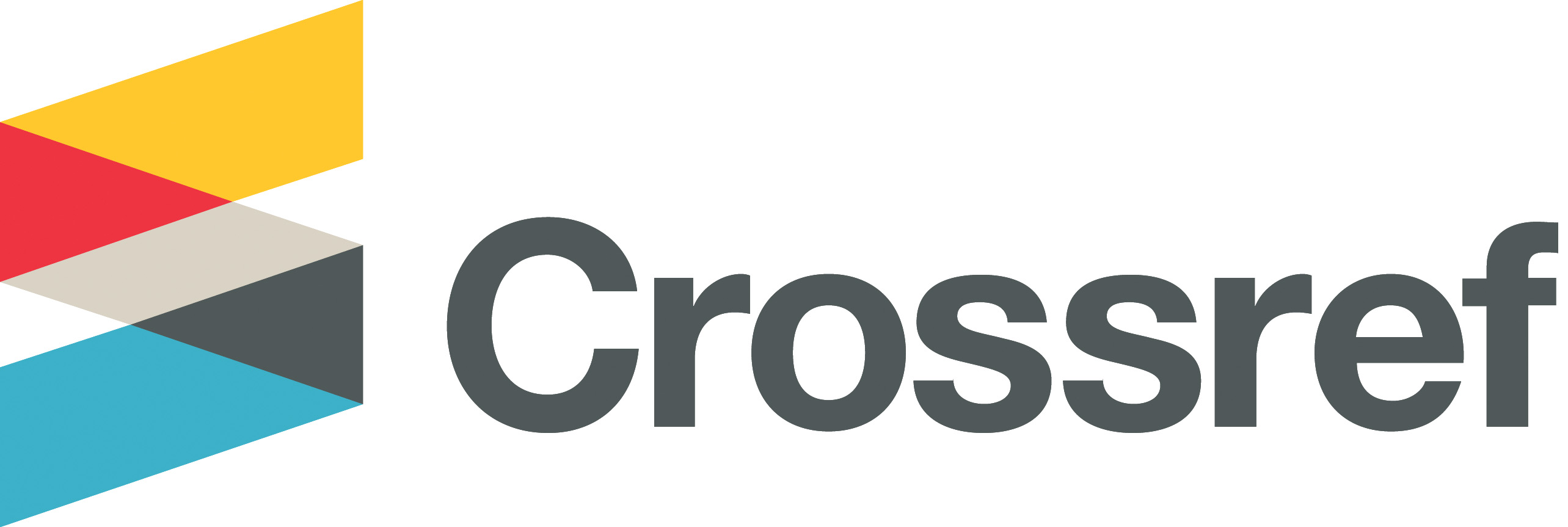The Use of Soft Power by Alhurra TV and Russia Today in News Bulletins
Content Analysis of Bulletins from 1/10/2022 to 31/12/2022
DOI:
https://doi.org/10.33282/abaa.v17i69.1116Keywords:
Use, Alhurra TV, Russia Today, Soft power, News bulletinsAbstract
Objectives: This study aims to reveal how the concept of soft power and its resources are used in the news bulletins of Alhurra TV and Russia Today. It starts from the assumption that both channels dedicate part of their broadcasts to leveraging soft power through the news they present, reflecting the role of international media in shaping and directing public opinion.
Methodology: This descriptive study used the survey method to analyze news bulletin content during the period from October 1, 2022, to December 31, 2022. The sample consisted of 30 news bulletins from each channel, selected using the “constructed month” technique to identify how each channel treated the subject of soft power.
Results: The findings showed that both channels clearly focused on soft power issues in their news bulletins, with differences in the number and distribution of news items. Government actors were most prominent as the active forces in employing soft power. Local news ranked first in Alhurra, while international news dominated Russia Today. In terms of airtime, Alhurra came first in coverage of soft power issues, followed by Russia Today.
Conclusion: The study confirmed that both media powers – Alhurra and Russia Today – clearly rely on using soft power in their news bulletins, but in different ways reflecting each channel’s priorities. The findings highlight that competition in international media is manifested through different emphases and news priorities, making soft power a central tool in shaping media policies.
Downloads
References
Abdul Jalil, M. A. (2020). The soft power of television talk shows in threatening civil peace. Journal of the College of Basic Education, 26(108), 126 - 146. https://doi.org/10.35950/cbej.v26i108.5193
Abdulnabi, S. (2014). Television Media. Aman: Dar Osama for Publishing and Distribution.
Al-Abadi, I. K. (2020). News Employment of the Syrian Crisis in International Satellite Channels. Turkey: Remar Academic Publishing House.
Al-Muhandis, M. H. (2010). Soft Power. Beirut: Dar Al-Wala'a for Printing and Publishing.
Al – Rubaie, W. M. A., & Khazaal, A.-N. (2019). News frames for the phenomenon of terrorism in international satellite channels directed in Arabic An analytical study of the main news bulletins in the Russian channel today 1/2/31/5/2018. ALBAHITH ALALAMI, 11(43), 169 - 182. https://doi.org/10.33282/abaa.v11i43.251
Ben-Razaq, Y. (2022). Effects of Modern Turkish Series as Soft Power on Algerian Society [Unpublished doctoral dissertation, Marmara University].
Berenskoetter, F., & Williams, M. J. (2007). Power and the battle for hearts and minds: On the bluntness of soft power. In Power in World Politics (pp. 93-107). Routledge.
Elteif, Y. A. (2023). Frameworks for Employing Satellite Channels for Soft Power in Implementing Foreign Policy of States Regarding the War Between Russia and Ukraine - An Analytical Study. Journal of Al-Farahidis Arts, 15(53), 245-265. https://doi.org/10.51990/jaa.15.53.2.13
Jassim, A. N. K. (1996). News Employment in International Radios: A Comparative Study of Methods and Content in Monte Carlo, Moscow, and Voice of America [Unpublished doctoral dissertation, University of Baghdad].
Rashti, J. A. (1978). The Scientific Foundations of Media Theories. Cairo: Dar Al-Fikr Al-Arabi.
Shibeeb, H. M., & Abdul Hadi, Z. (2013). Employment of Body Language in Television Advertising An Analytical Study of Al-Hayat TV Commercials (The Egyptian Series as a Model). ALBAHITH ALALAMI, 5(21), 134-158. https://doi.org/10.33282/abaa.v5i21.320
Tohamy, G. S. (2017). A Proposed Strategy for Employing Higher Education in Strengthening Soft Power in Egypt to Counter the Intellectual Invasion. Journal of the Faculty of Education, Menofia University, 2017(3), 234-310. https://doi.org/10.21608/muja.2017.108573
Tuchman, G. (1973). Making News by Doing Work: Routinizing the Unexpected. American Journal of Sociology, 79(1), 110-131. https://doi.org/10.1086/225510
Downloads
Key Dates
Received
Revised
Accepted
Published
Issue
Section
License
Copyright (c) 2025 Author

This work is licensed under a Creative Commons Attribution 4.0 International License.
Authors retain copyright and grant the journal right of first publication with the work simultaneously licensed under a Creative Commons Attribution License (CC BY 4.0) that allows sharing the work with recognition of authorship and initial publication in ABBA journal.


















